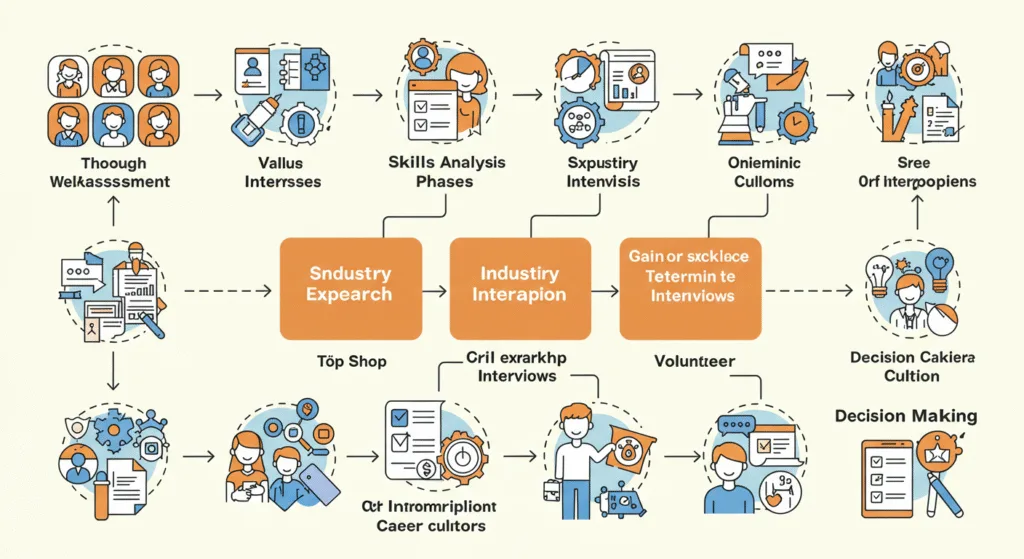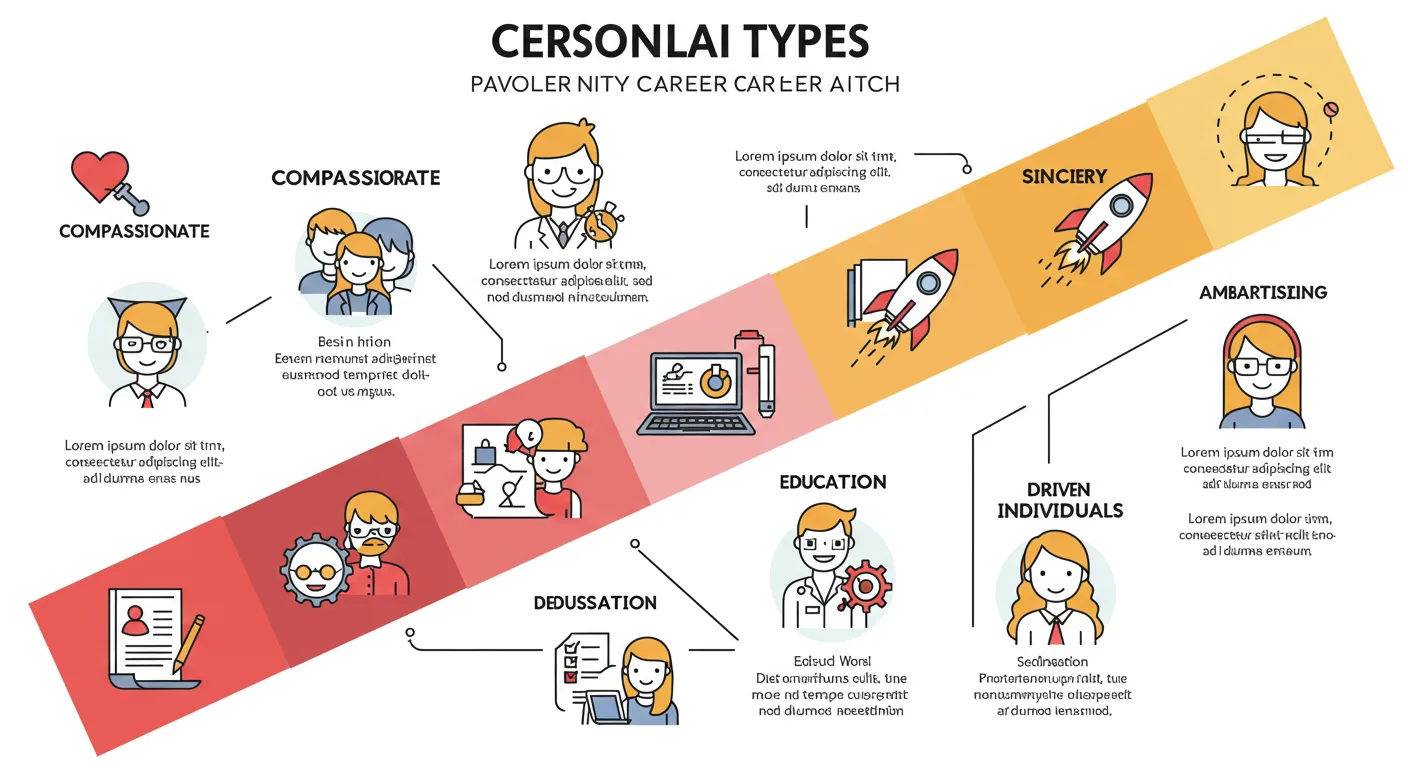Discover what job suits you best with our expert guide. Explore personality assessments, skills matching, and career paths to find your ideal role.
What Job Suits Me? Discover Your Ideal Career Path
Choosing a career is one of the most important decisions in life. It shapes not only your professional identity but also your happiness, growth, and financial stability. Many people often ask, “What job suits me?” This question may seem simple, but it requires deep self-reflection, research, and exploration.
In this comprehensive guide, we will explore various tools, techniques, and insights that can help you determine what job suits you best. Whether you’re a student, a recent graduate, or someone considering a career change, this article will provide valuable information to guide your journey.
Why Knowing What Job Suits You Matters
Before diving into the process of finding your ideal job, it’s essential to understand why this matters. A well-suited job can lead to:
- Increased job satisfaction
- Higher productivity and performance
- Better work-life balance
- Long-term career growth
- Personal fulfillment and motivation
Conversely, being in a job that doesn’t align with your strengths, values, or interests can result in burnout, dissatisfaction, and even mental health issues. Therefore, investing time in discovering what job suits you is not just wise — it’s necessary.
Step-by-Step Guide to Finding What Job Suits You
1. Self-Assessment: Know Yourself First
The first step in answering “What job suits me?” is to understand yourself. This includes your:
- Personality type
- Interests and passions
- Skills and talents
- Values and priorities
- Strengths and weaknesses
Tools for Self-Assessment
Several tools are available to help you gain clarity about your traits and preferences:
- Myers-Briggs Type Indicator (MBTI) – Identifies personality types and preferred working styles.
- Holland Code (RIASEC Test) – Matches careers to six personality types: Realistic, Investigative, Artistic, Social, Enterprising, and Conventional.
- StrengthsFinder – Helps identify your top strengths to focus on roles where they can be used.
- Big Five Personality Traits – Assesses openness, conscientiousness, extraversion, agreeableness, and neuroticism.
These tests can be taken online or through career counseling services. They offer insight into what kind of environment and tasks would make you thrive.
2. Identify Your Skills and Talents
Skills are divided into two main categories:
- Hard Skills – Technical abilities learned through education or experience (e.g., coding, accounting, graphic design).
- Soft Skills – Interpersonal qualities like communication, leadership, problem-solving, and adaptability.
To find what job suits you, list both your hard and soft skills. Ask yourself:
- What am I naturally good at?
- What do others compliment me on?
- Which skills have helped me succeed in past roles?
Once you have a clear picture of your skill set, you can match them with suitable job profiles.
3. Understand Your Values and Priorities
Your values define what matters most to you in life and work. These include:
- Work-life balance
- Salary expectations
- Company culture
- Opportunities for growth
- Location flexibility
- Ethical alignment
When your job aligns with your core values, you’re more likely to feel satisfied and motivated. For example, if autonomy is important to you, a remote or freelance role might suit you better than a corporate position with rigid structure.
Use tools like the Work Values Assessment to pinpoint what truly drives you.
4. Explore Different Industries and Careers
After assessing your personality, skills, and values, it’s time to explore different industries and job roles. Researching careers helps you understand:
- Day-to-day responsibilities
- Required qualifications
- Growth opportunities
- Industry trends
Websites like O*NET Online, LinkedIn, and Bureau of Labor Statistics (BLS) offer detailed job descriptions and market data.
You can also reach out to professionals in fields of interest via LinkedIn or networking events to get firsthand insights.
5. Try Before You Commit
Sometimes, the best way to know what job suits you is to try it out. Consider:
- Internships
- Freelance projects
- Volunteering
- Job shadowing
- Online courses
These experiences allow you to test-drive a career without long-term commitment. They also build your resume and give you real-world exposure.
6. Get Professional Guidance
If you’re still unsure, career counselors or coaches can provide personalized advice. They use advanced assessment tools and strategies to help you uncover hidden potentials and match them with suitable careers.
Many universities, employment centers, and private organizations offer these services.
Common Mistakes to Avoid When Trying to Find What Job Suits You
While searching for your ideal job, avoid falling into these traps:
- Following trends blindly – Just because a job is popular doesn’t mean it’s right for you.
- Ignoring your values – Money alone won’t keep you happy if the job doesn’t align with your beliefs.
- Comparing yourself to others – Everyone has a unique path; comparing yours to someone else’s can lead to confusion.
- Rushing the decision – Take time to reflect and gather information before making a choice.

How to Match Your Personality to a Career?
Let’s dive deeper into how different personality types are suited to specific careers.
The Analytical Thinker
People who enjoy solving problems, analyzing data, and thinking critically may excel in:
- Data science
- Engineering
- Research
- Law
- Finance
The Creative Mind
Those who love expressing themselves through art, writing, music, or design might consider:
- Graphic design
- Writing/editing
- Marketing
- Interior design
- Film production
The People Person
If you enjoy interacting with others and helping them grow, these roles could suit you:
- Teaching
- Counseling
- Human resources
- Sales
- Event planning
The Leader
Natural leaders who enjoy managing teams and driving results may thrive in:
- Entrepreneurship
- Management
- Consulting
- Public administration
- Corporate training
The Detail-Oriented Organizer
Those who prefer structured environments and enjoy organizing systems may enjoy:
- Accounting
- Project management
- Administration
- Logistics
- Legal assistant roles
Understanding which category you fall into can help narrow down potential careers significantly.
Jobs That Suit Introverts vs. Extroverts
Your level of sociability plays a big role in determining what job suits you.
For Introverts:
Introverts often prefer quiet, independent work environments. Suitable jobs include:
- Software developer
- Writer/editor
- Librarian
- Accountant
- Graphic designer
For Extroverts:
Extroverts typically enjoy high-energy, social interactions. Good fits are:
- Sales representative
- Public relations specialist
- Teacher
- Event planner
- Customer service manager
Of course, these are generalizations, and many jobs can be adapted to suit individual preferences.
What If You Don’t Know What Job Suits You?
It’s completely normal to feel uncertain. Here’s what you can do:
Reflect on Past Experiences
Think about times when you felt most engaged and productive. What were you doing? Who were you with? What made those moments satisfying?
Try New Things
Take small steps toward exploring new areas. Enroll in a short course, attend a workshop, or volunteer for a cause you care about.
Keep an Open Mind
Sometimes, the perfect job isn’t obvious at first. Be open to evolving interests and changing circumstances.
Technology and AI: Helping You Find What Job Suits You
With advancements in artificial intelligence, several platforms now offer personalized career recommendations:
- AI-powered job matchers
- Resume analyzers
- Skill gap assessors
- Virtual career advisors
Tools like LinkedIn Career Insights, Indeed Career Search, and SeekOut provide tailored suggestions based on your background and aspirations.
Changing Careers? Here’s How to Determine What Job Suits You Now
Changing careers is increasingly common, especially with shifting industries and remote work opportunities. If you’re considering a pivot, here’s how to find what job suits you at this stage:
Assess Transferable Skills
Look at your current job and identify skills that can apply to other fields. For example, project management, communication, and leadership are highly transferable.
Upskill or Reskill
Take advantage of online learning platforms like Coursera, Udemy, or LinkedIn Learning to acquire new competencies relevant to your desired field.
Network Strategically
Connect with professionals in your target industry. Informational interviews and mentorship can provide insider knowledge and open doors.
Remote Work and Freelancing: New Options for What Job Suits You
Remote work and freelancing have expanded the possibilities for flexible, location-independent careers. Some popular remote-friendly jobs include:
- Digital marketing
- Copywriting
- Virtual assistance
- Web development
- Translation
- Online tutoring
These roles allow for greater autonomy and can be ideal for individuals seeking a better work-life balance.
Frequently Asked Questions (FAQ)
Q1: How do I know what job suits me best?
Start by evaluating your personality, skills, values, and interests. Use career assessments and talk to mentors or professionals in fields you admire.
Q2: Can I switch careers later in life?
Yes! Many people successfully transition to new careers after years in another field. Focus on transferable skills and invest in learning new ones.
Q3: Are there free tools to help me decide what job suits me?
Yes, platforms like O*NET, MBTI, Holland Code Test, and CareerOneStop offer free assessments and career guidance.
Q4: Should I follow my passion or choose a stable job?
Ideally, aim for a balance. Passion brings motivation, while stability ensures security. Look for roles that combine both elements.
Q5: What if no job seems to suit me?
It may indicate that you need to explore unconventional paths, start your own business, or take time for personal development before committing to a job.
Conclusion: Finding What Job Suits You Is a Journey
Answering the question “What job suits me?” is not a one-time event. It’s an ongoing process that evolves as you grow personally and professionally. By taking the time to understand yourself, explore options, and seek guidance, you’ll be well on your way to finding a fulfilling and rewarding career.
Remember, the goal isn’t just to find any job — it’s to find the right job for you.
Final Thoughts
Whether you’re just starting out or looking for a change, knowing what job suits you is the foundation of a successful and satisfying career. With the right tools, mindset, and support, you can confidently navigate the world of work and find your place in it.
Author Bio:
This article was written by Najeeb Alam a certified career counselor and digital content strategist specializing in personal development and job market trends. With over a decade of experience guiding individuals toward meaningful careers, they provide actionable insights rooted in psychology and labor economics.
Career path finder
Want to discover what job suits you? Take our free career quiz today and unlock your dream career path!
Leave a comment
Have questions about what job suits you? Leave a comment below and our team will respond within 24 hours.
